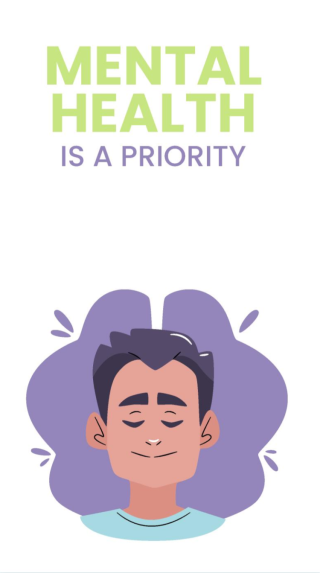Counselling
Feeling low is a completely normal response to stressful and difficult times. However, some people may feel low for long periods of time, and may not know why. Decreased sleep, self-esteem, exercise and poor diet, alongside increased alcohol or drug use can maintain low mood and may be important starting points for managing depression. A psychologist can also provide you with the tools and insight to improving your headspace.
Unlike stress, anxiety can be persistent and excessive and doesn’t go away as easily. Anxiety can surface physically such as through muscle pain, stomach aches, sweaty palms or increased heart rate, or emotionally, such as through irritability or anger. Sometimes anxiety can turn into panic attacks, can be specific (e.g., situations, objects, social) or more generalised. Avoidance or unhealthy strategies (e.g., drugs, alcohol) are often used to manage although maintains the anxiety in the long run. A psychologist can help with introducing more adaptive coping strategies and reducing the anxiety.
Stress manifests similarly to anxiety, although tends to go away once what we are stressed about resolves. Difficulties adjusting to work, relocation, or family disruptions can result in stress which can be managed psychologically.
The relationship we have with ourselves influences the kinds of relationship we have with others. A psychologist can help you improve the relationship you have with yourself and thus, the relationships you have with others.
Unwanted ideas, thoughts, and urges can be distressing and confronting. Sometimes, these are managed through specific actions. A psychologist help manage the distress of living with OCD.
Eating Disorders
Having an unhealthy relationship with food can manifest as strict dieting, meal skipping, binge eating or purging thoughts and behaviours. This can have a tremendous impact on quality of life and cause concerning physical health consequences. Often times, people are ambivalent about addressing their concerns around food. This is often a symptoms of an eating disorder in itself.
Body Image Concerns
Body image is the way we think or feel about our body, which can either be positive or negative. Obsessive thinking around weight/shape/exercise, and negative self-talk can often underpin and maintain a negative relationship we have with our body. A psychologist can help you analyse and improve the relationship you have with you body and quality of life.
Self-harm
For some people, self-harm can be a way to manage intense emotions when it seems like there is no other way to deal or express their feelings. Although it may give temporary relief, the problem tends to be long-standing which can make self-harm a repeated behaviour that becomes difficult to manage. A psychologist can help explore alternative coping strategies and equip you with the tools to tolerate difficult times.
Addictions
Drugs, alcohol, gambling, sex, porn and beyond may feel good for a little while but in the long run can make us feel much worse. Often the trade off between what feels ‘right’ in the moment vs what is best for our future can be difficult to keep in mind. A psychologist can help with motivational interviewing, and explore and treat the underlying unmet needs that often maintain addictions.

Santosha Psychology provides a range of services to meet the unique needs and goals of our clients. This can include one-to-one therapy for personal support, or when indicated, family-based therapy for Eating Disorders.
Accessible Services
At Santosha Psychology, we believe that quality mental health care should be accessible to everyone. That is why both face-to-face as well as online therapy is provided. Out of hours services can also be provided upon request.
Our goal is to make it as easy as possible for you to get the care and support you need to improve your mental health and well-being.
- Psychodynamic Psychotherapy
- Cognitive-behaviour therapy
- Acceptance and Commitment Therapy
- Motivational Interviewing
- Solution Focused Therapy
- Mindfulness and Compassion Focused Therapy
